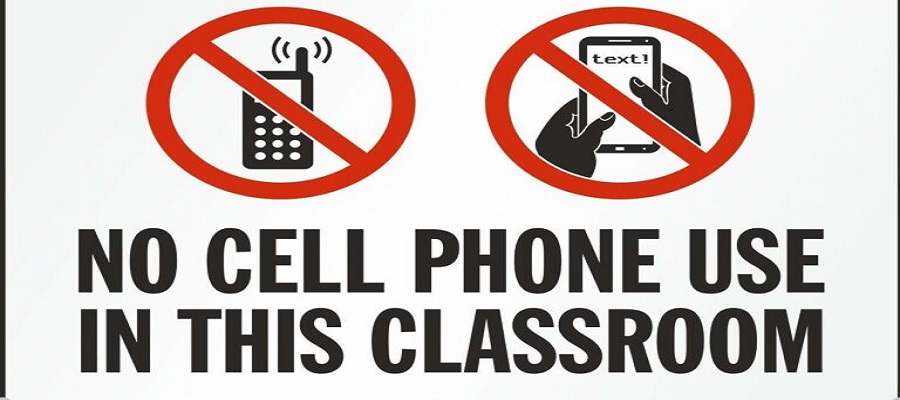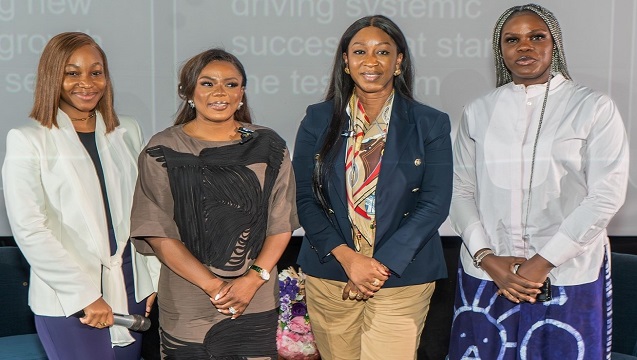General News
Right of Reply: SAHCOL Got it all Wrong

Indigenous Software: SAHCOL got it all wrong! The purpose of this write up is to present an empirically informed understanding of the processes inherent in software development dynamics as a professional response by the Institute of Software Practitioners’ of Nigeria (ISPON) to statements and opinion published in the Nigeria Communications Week – Online version of Friday, August 3, 2012 (Online News Letter August 3, 2012) and credited to one Adejare Adekitan, a staff and head information and Communications Technology (ICT) at Skyway Aviation Company Limited.
The views would definitely not go unnoticed by discerning I.T Professionals and indigenous Software Developers. This response therefore aims to correct the very misleading and ignorant impression by the source – Mr. Adejare.
Mr. Adejare in his remark emphasised the continued patronage of Foreign Software as against indigenous software-and a critical look at this statements did not present any argument on technicalities as to the reason why indigenous software is not of reckoning to the Aviation.
This is a fallacy and goes to a long way to publicly display the deep of ignorance of how software product functionality, quality and integrity emerges and are sustained. It is therefore constructive to emphasize that “No software in the World is perfect” – that is why continuous versioning of Applications and solutions are strategic imperatives. Software Engineering is about transforming organisational policy, functions, business-processes and operations culture into an automated systems solution.
It is important to emphasise the following to debug and debunk the fallacy embedded in the statement of Mr Adejare: 1. All Software Solutions of the world are delivered with one, many, and several process flaws or errors in them – that is why there are many versions, leading to system capability and maturity model (CMM). Even at that, the complexity of human needs continues to demand more perfection that makes flawless software process a mirage.
2. There are numerous Foreign Software – imported into Nigeria and deployed\implemented by the Aviation and Banking sectors and other core Industries at colossal cost to shareholders and national economy – that have either FAILED to perform, or fulfill the contract scope of works!
3. I doubt is Mr Adejare is listed in the membership registry of Professional IT/Software Practitioners’ of Nigeria and his opinion to say the least is grossly uninformed and a layman view. His views are grossly misleading, ignorant and should not be taken as expert opinion.
Least Mr Adejare forgets, that as an electrical engineering graduate who to my view had never ventured nor written any reasonable Software application for the Aviation industry, will arrogate to himself to be an expert judge on Indigenous Software. By extension, he missed the point by expressing the view that Africa has no credible Software Developers which is equal to saying that orthodox medicine cures all illnesses in Africa.
Nay, the matter is about human intellect and creativity – that is software and Africa/Nigeria have them plenty. Let is be said that indigenous software applications are driving the significant operations of some of Nigeria’s top performing industries, including Aviation banks, oil and Gas, and so on.
The critical issue of this subject matter is focused on the fact that Software development lifecycle has two fundamental elements: Domain Knowledge and Professional Expertise on Analytical Process to codify the required solution – applying specific tools and standard procedures. In that context, Aviation Applications are predominantly and indirectly address and specified by Domain Knowledge Resources from the sector (who generate the operational policy roadmap brief) working directly with Software Analysts’ Engineers and Developers who apply technology process logic and tools to deliver the assessed needs of the client.
Same applies to Space Exploration, Communications, Financial, Accounting, Payroll, Construction, Medical, Agricultural, Oil & Gas Solutions to mention but a few. Software from the above mentioned domain are often subjected to intensive domain research through various channels of investment –particularly encouraged by the financial institutions.
The gestation period is long – maturity timeline ranges from minimum 3 to 5 to 7 years. To the best of our knowledge, there has not been any of such classified investment in the Software industry in Nigeria by the Banking Sector. What Mr Adejare seems to forget is that Indigenous Software Developers read from the same Universities, book and use the same tools as their foreign counterparts. Enabling environment may differ.
Indeed, the domain policy, operational requirements and briefs from the clients are then matched with the technology needs-assessment of the clients to enable the Software developers come up with the desired design and appropriate tools capable of delivering the solution.
Software – simply defined as computer software, or just software, is the collection of computer programs and related data designed to provide the logical instructions directing a computer hardware or related devices on what to do.
The term was coined to contrast to the old term hardware (meaning physical devices). In contrast to hardware, software is intangible, meaning it “cannot be touched”.
Software is also sometimes used in a more narrow sense, meaning application software only. Most of these software applications are derived from DOMAIN needs and replicate the operational characteristics of such domain.
Coming from the banking sector which should be concerned about the growth of the economy, this is really heart breaking and goes a long way to show that majority of our financial institutions are not committed to the growth of the Nigerian economy.
Mr. Adejare of SAHCOL got it all wrong by while asserting that foreign software solutions are the answer to Nigeria’s Aviation Sector, he has not stopped to think of the peculiarity of adaptive technology which can only be guaranteed by the local developers. By extension, he might have become a paid ally of those countries who intend to box us into the Digital Colony Domain, where Aviaton Application software becomes the major tool to assassinate stubborn African/Nigerian President in Future.
He probably has not realised that the domain knowledge is most critical to the development of application software solutions and that Nigerian Developed Software is perhaps the most fundamental component for the future and survivability of the Nigerian nation.
His argument that the Software industry in Nigeria might be young, thus unable to handle enterprise software and solutions of ‘Aviation Proportions’ is flawed on the background of the cognate experience of Nigerian Software Developers which spans more that 30 years of the 50 years origin of modern software development culture.
Mr. Adejare has not taken into account of the fact that Nigerian software developers have worked and continue to support the sustainability of foreign software.
Indeed, these Nigerians still head those foreign software organisations operating in Nigeria.
Mr Adejare not only sleights the software industry which was given credence by the Obasanjo Administration when the then President directed all MDA’s to use Indigenous software but also berates himself as an IT professional for being incapable of meeting the technical and intellectual needs of an industry which prides itself on imported software.
Nigeria may not have dedicated tertiary institutions as concerns software development, but that does not mean that the higher institutions/indigenous companies are not meeting the software needs of discerning Nigerians. How much of investment has the bank committed into software development in Nigeria?
Mr. Adejare needs to sit with developers and let them showcase their milestones and challenges instead of insulting the intellectual capability of software practitioners by falsely asserting that indigenous application software are not robust enough to meet the rigours of enterprise demands.
Indeed that false statement becomes transparently misleading when weighed against the following false statements: 1. Nigerians are not capable of developing and managing Banking business!
2. Nigerian Pilots are not capable of flying an A380 Airbus!
3. Nigerian Lawyers and Judges are not capable of handling international judicial litigation!
4. Nigerian Scientists are not capable of making new discoveries! 5. Nigerian writers are not capable of writing internationally acclaimed books! 6. Nigerians are not capable of being the President of their nation!!!
ISPON demands and unreserved apology from Mr. Adejare for insulting Nigerian Software Developers. To SAHCOL, the employers of Mr. Adejare, ensure that your staff is registered to practice the ICT Profession in Nigeria, else, he is undertaking and illegal employment.
That the software industry in Nigeria is not being patronised is due to the subconscionable bias towards foreign goods which majority of colonised countries still carry.
They should liberate themselves from this mental slavery and wake up to the reality of Nigerian Entrepreneurial spirit.
Furthermore, the foreign exchange transfer factor of Foreign Software and services is why people like Mr. Adejare have become their spokesman.
The digital space and laboratory for the practice of Software in our nation is the client’s domain the is our current and future laboratory – and no one has the right to deny indigenous software developers the fundamental and intellectual rights (IPRs) to practice their profession within that digital/cyberspace.
It is a great illusion to belief that things will remain the way they presently are!
There is need to inform Mr. Adejare that our education system is currently producing Information Technology Practitioners in very large numbers.
And that the Nigerian code warriors have arrived and ready to take charge. Finally, Nigerian Aviation should open the digital space and create a level playing field for Indigenous Software developers – both at home and in the Diaspora.
They should proof their support for indigenous software by challenging them with project calls. The hide and seek game in defence of foreign software to corruptly earn foreign exchange is over! With the Local Content act, Game is up.
General News
University Don Seeks Ban of Smartphones, Social Media in Schools

Dr Saeed Olorunnisola, interim Dean of the Faculty of Agriculture at Al-Hikmah University in Ilorin, Kwara State, has urged the federal and state governments to prohibit the use of smartphones in secondary and tertiary schools.

Olorunnisola stated that the prohibition will help students concentrate in class.
He stated this during the mission for the eradication of examination malpractice’s (MEEM) second national symposium in Osogbo, Osun State, at the weekend.
Olorunnisola expressed concern about the impact of examination malpractices on education and national development, citing social media as a major impediment to students’ concentration even in secondary schools.
“Social media is causing distraction in secondary schools. Tertiary institutions are the worst. Students don’t care any longer. Some of them are taking photo shot of notes and they will not read them. They are usually on social media.
“What we have right now is a misuse of technology and it must be taken away. We have a university that has banned their undergraduate from using mobile phones,” he said.
Speaking on the need for government to act and assist young learners to concentrate in class, the don said ban on the use of smartphones by a particular university that he did not disclose eventually assisted its students to concentrate more in class.
In his remarks, Prof Buniyameen Abdulkareem, chairman of the MEEM Board of Trustees, stated that the group, a non-governmental organisation founded by the Muslim Students’ Society of Nigeria B-Zone, organised the symposium for policymakers, students, and teachers after realising the need to stem the tide of rising examination malpractices in the country.
General News
Amid Rising Investor Confidence in Nigeria, Woodhall Capital Foundation Trains Captains of Industry

As business confidence in Nigeria rose to the highest level in 14 months signalling a rising demand for their goods and services, Woodhall Capital International Foundation (WCIF), a subsidiary of Woodhall Capital, a leading financial advisory firm, in partnership with Mentor Intro Africa, a premier platform for connecting with the world’s foremost mentors, has commenced the training of a new generation of Captains of Industry through an ongoing 6-week intensive mentorship programme.

Speaking about the programme which commenced with forty shortlisted mentees on Friday March 5 at EbonyLive Studios, Victoria Island, Lagos, the President of Woodhall Capital, Mrs. Mojisola Hunponu-Wusu, noted, “We are very excited to bring together 40 Captains of Industry and share ideas and visions on how to build sustainable businesses in Nigeria.
It’s been a wholesome experience from 9am to 3pm. It’s so heartwarming to have found Captains of Industry who are indigenous to Africa and others who are going global. We shared ideas on how exactly we can accomplish these, the peculiarities of doing business in Nigeria, and the possibilities of Africans building offices around the world. That’s what we have started on Friday.”
Reinforcing what the partnership means to her, the Founder of Mentor Intro Africa, Mrs. Fola Niyi-Duale, remarked, “What we set out to do is to bridge the gap between career professionals and those who have already walked the path.
“It means we created a structured virtual platform where experienced industry leaders can guide, support, and inspire professionals and entrepreneurs on their journey to greatness. This is big because it epitomizes impact and we’re leaving a legacy for people to see and enjoy a future that we may not even be a part of, but we have laid the foundation.”
Both partners reiterated that the mentorship is not for the optics and its impact upon completion would far-reaching.
One of the mentees, Co-founder/Chief Technical Officer, Blue Sands STEM LabsOveral, Kingsley Okechukwu, excitedly said, “I’m glad I got the opportunity to be part of this mentorship. Our first session reinforced the significance of visionary leadership, employee retention, continuous innovation, and strategic positioning in ensuring long-term business success.”
This collaboration between Mentor Intro Africa and Woodhall Capital Foundation brings together visionary leaders, seasoned professionals, and the next generation of changemakers in an empowering initiative designed to bridge mentorship with high-impact leadership.
Together, the partners aim to spotlight industry pioneers, foster meaningful dialogues, and create lasting impact across Africa’s business and professional landscape.
General News
NASRDA Commences Space Regulation Mandate with N20Bn Fund

National Space Research and Development Agency (NASRDA) is set to commence the implementation of its space regulation and licensing mandate following the approval of a N20 billion take-off fund by President Bola Tinubu.

Speaking in an interview, Dr. Matthew Adepoju, director-general, NASRDA, emphasised that the agency’s regulatory functions, as outlined in the NASRDA Act (2010), have remained unfulfilled since its establishment in 1999.
To address this, Adepoju submitted a memorandum to President Tinubu advocating for enforcement of space regulation, leading to the recent approval of funds.
Adepoju highlighted the urgency of regulating Nigeria’s space sector to prevent misuse, particularly regarding security-sensitive activities.
The regulatory framework will oversee:
Satellite image providers
Geographic information system operators
Satellite-based telecommunications and broadcasting services
He warned that unregulated geographical data intelligence could be exploited by non-state actors, underscoring the importance of strict oversight.
NASRDA has set up a licensing platform open to public and private sector operators in the space industry.
The regulation will cover Nigeria’s three space segments:
Upstream – Deep space activities
Midstream – Satellites and orbital objects
Downstream – Ground stations and space service users
Although the agency has yet to access the N20 billion fund, Adepoju confirmed that regulatory and licensing functions have commenced.

 Telecom3 days ago
Telecom3 days agoMafab Communications Has Launched 5G Services- Findings

 Broadcasting3 days ago
Broadcasting3 days agoBurna Boy, Other Nigerian Artists Pocket $38m from Spotify in 2024

 E-Business3 days ago
E-Business3 days agoEquinix Launches LG2.3 Data Centre in Nigeria

 E-Business3 days ago
E-Business3 days agoDHL Signs MoU with Temu to Drive Sustainable Supply Chain Solutions for SMEs

 E-Business3 days ago
E-Business3 days agoMicrosoft Marks 50th Anniversary with Major Copilot AI Update

 Telecom3 days ago
Telecom3 days agoSophos Reveals Key Findings: 56% of Cyberattacks Exploit Valid Credentials

 E-Financial3 days ago
E-Financial3 days agoTCL Launches ‘vetandpay’ to Combat Online Transaction Fraud

 E-Business3 days ago
E-Business3 days agoReport Suggests a Slash in Mobile App Usage By 2027 Due to AI Assistants















